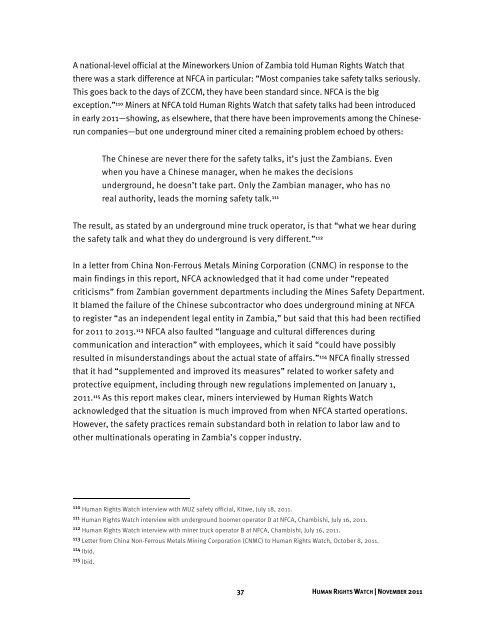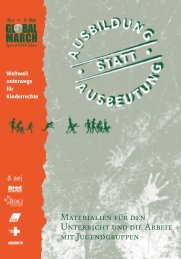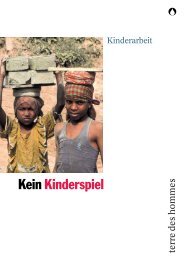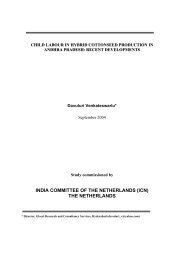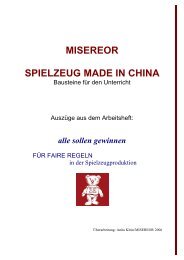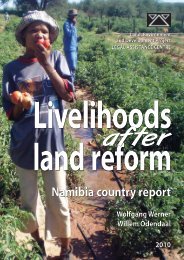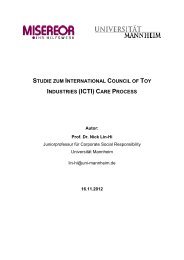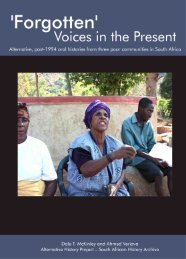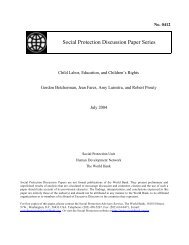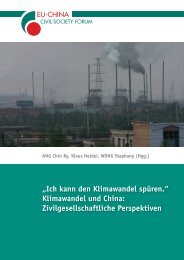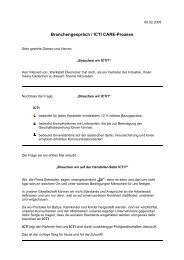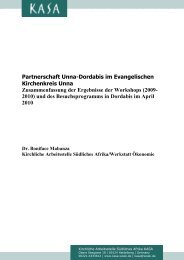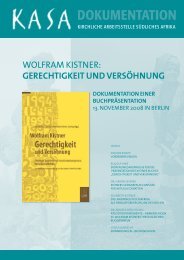“You'll Be Fired if You Refuse†- Human Rights Watch
“You'll Be Fired if You Refuse†- Human Rights Watch
“You'll Be Fired if You Refuse†- Human Rights Watch
You also want an ePaper? Increase the reach of your titles
YUMPU automatically turns print PDFs into web optimized ePapers that Google loves.
A national-level official at the Mineworkers Union of Zambia told <strong>Human</strong> <strong>Rights</strong> <strong>Watch</strong> that<br />
there was a stark d<strong>if</strong>ference at NFCA in particular: “Most companies take safety talks seriously.<br />
This goes back to the days of ZCCM, they have been standard since. NFCA is the big<br />
exception.” 110 Miners at NFCA told <strong>Human</strong> <strong>Rights</strong> <strong>Watch</strong> that safety talks had been introduced<br />
in early 2011—showing, as elsewhere, that there have been improvements among the Chineserun<br />
companies—but one underground miner cited a remaining problem echoed by others:<br />
The Chinese are never there for the safety talks, it’s just the Zambians. Even<br />
when you have a Chinese manager, when he makes the decisions<br />
underground, he doesn’t take part. Only the Zambian manager, who has no<br />
real authority, leads the morning safety talk. 111<br />
The result, as stated by an underground mine truck operator, is that “what we hear during<br />
the safety talk and what they do underground is very d<strong>if</strong>ferent.” 112<br />
In a letter from China Non-Ferrous Metals Mining Corporation (CNMC) in response to the<br />
main findings in this report, NFCA acknowledged that it had come under “repeated<br />
criticisms” from Zambian government departments including the Mines Safety Department.<br />
It blamed the failure of the Chinese subcontractor who does underground mining at NFCA<br />
to register “as an independent legal entity in Zambia,” but said that this had been rect<strong>if</strong>ied<br />
for 2011 to 2013. 113 NFCA also faulted “language and cultural d<strong>if</strong>ferences during<br />
communication and interaction” with employees, which it said “could have possibly<br />
resulted in misunderstandings about the actual state of affairs.” 114 NFCA finally stressed<br />
that it had “supplemented and improved its measures” related to worker safety and<br />
protective equipment, including through new regulations implemented on January 1,<br />
2011. 115 As this report makes clear, miners interviewed by <strong>Human</strong> <strong>Rights</strong> <strong>Watch</strong><br />
acknowledged that the situation is much improved from when NFCA started operations.<br />
However, the safety practices remain substandard both in relation to labor law and to<br />
other multinationals operating in Zambia’s copper industry.<br />
110 <strong>Human</strong> <strong>Rights</strong> <strong>Watch</strong> interview with MUZ safety official, Kitwe, July 18, 2011.<br />
111 <strong>Human</strong> <strong>Rights</strong> <strong>Watch</strong> interview with underground boomer operator D at NFCA, Chambishi, July 16, 2011.<br />
112 <strong>Human</strong> <strong>Rights</strong> <strong>Watch</strong> interview with miner truck operator B at NFCA, Chambishi, July 16, 2011.<br />
113 Letter from China Non-Ferrous Metals Mining Corporation (CNMC) to <strong>Human</strong> <strong>Rights</strong> <strong>Watch</strong>, October 8, 2011.<br />
114 Ibid.<br />
115 Ibid.<br />
37 HUMAN RIGHTS WATCH | NOVEMBER 2011


